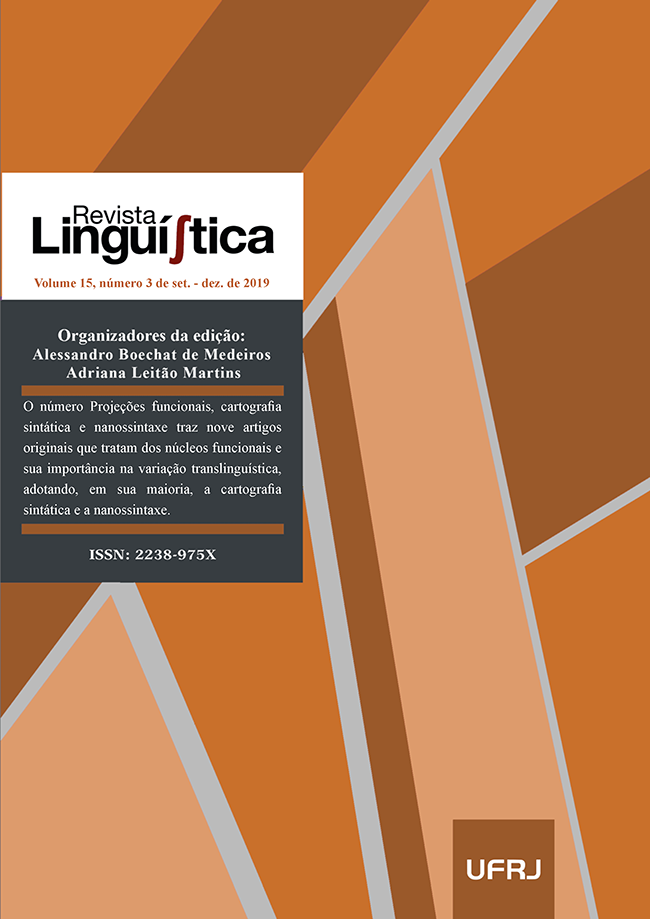Pieces of evidence for the types of perfect taken from the acquisition of Brazilian Portuguese
DOI:
https://doi.org/10.31513/linguistica.2019.v15n3a28438Keywords:
language acquisition, perfect aspect, resultative perfect, universal perfect, experiential perfect.Abstract
This research intends to investigate the acquisition in Brazilian Portuguese of the three types of perfect, proposed by Pancheva (2003), associated with the present tense, assuming the existence of syntactic node(s) of perfect in the structural representation of the sentence. Based on this investigation, we aim to contribute to the study of the representation of linguistic knowledge of perfect. The hypothesis of this research is that the emergence of the resultative perfect, experiential perfect and universal perfect associated with the present tense occurs simultaneously in the Brazilian Portuguese acquisition. To this end, we developed a case study, with speech data longitudinally retrieved from a child in the process of acquiring Brazilian Portuguese. The obtained data revealed the following order of realization of the perfect types: resultative perfect, universal perfect and experiential perfect. This way, we refuted the hypothesis of this study. Thus, we suggest that there is a dissociation in the linguistic representation of these types of perfect, each one of them projecting, respectively, the nodes RePerfP, UPerfP and ExPerfP. The features heading these projections would be, respectively, resultative, continuous and experience. We also argue in favor of the following structural hierarchy: ExPerfP > UPerfP > RePerfP.
---
DOI: http://dx.doi.org/10.31513/linguistica.2019.v15n3a28438
Downloads
Published
Issue
Section
License
Authors who publish in the Revista Linguí∫tica agree with the following terms:
The authors maintain their rights, ceding to the journal the right to first publication of the article, simultaneously submitted to a Creative Commons license permitting the sharing with third-parties of published content as long as it mentions the author and its first publication in the Revista Linguí∫tica.
Authors may enter into additional agreements for the non-exclusive distribution of their published work (for example, posting in online institutional or non-profit repositories, or book chapters) so long as they acknowledge its initial publication in the Revista Linguí∫tica.

The journal Revista Linguí∫tica is published by the Post-Graduate program in Linguistics of UFRJ and employs a Creative Commons - Attribution-NonCommercial 4.0 International (CC-BY-NC).









